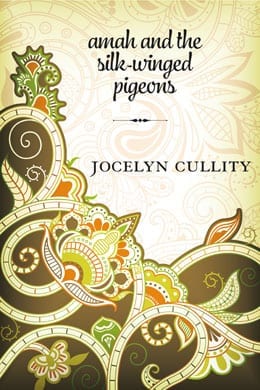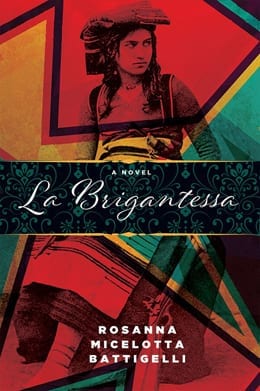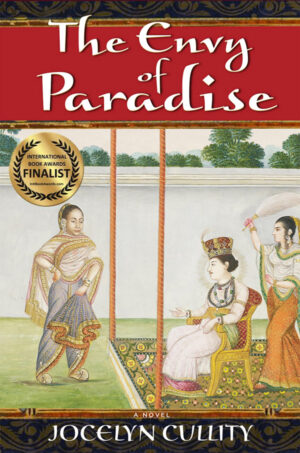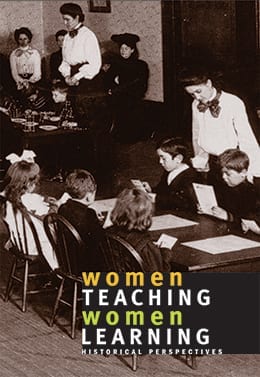Winner, 2018 American Bookfest Best Book Awards (Historical Fiction)
Shortlisted, 2018 GOETHE Book Awards for Post-1750s Historic Fiction
Longlisted, 2018 Chanticleer Historical Fiction Award
Shortlisted, 2018 Eric Hoffer Award Grand Prize
Finalist, 2018 International Book Award
(Historical Fiction)
Finalist, 2018 International Book Award
(Multicultural Fiction)
Finalist, 2018 Foreword INDIES Award
Adult Fiction (Historical)
Finalist, 2018 Foreword INDIES Award
Adult Fiction (Multicultural)
Finalist, 2018 The Montaigne Medal
(Eric Hoffer Award)
Finalist, 2018 First Horizon Award
(Eric Hoffer Award)
Honourable Mention, 2018 Eric Hoffer Award
(General Fiction)
Shortlisted, 2017 Mary Sarton Award
(Historical Fiction)
One of 20 recommended novels (internationally) by the Walter Scott Prize, Scotland
-
English language rights in India and Indian subcontinent sold to Rupa Publications, New Delhi, India
-
World Tamil rights sold to Kalachuvadu Books, Nagercoil, India
-
French-language rights sold to La Pleine Lune, Montreal, QC
Prior to 1857, the year it was engulfed by tragic historical conflict, the cosmopolitan city of Lucknow thrived on open-mindedness, great prosperity and pride, the city a magnet for musicians, poets, painters and chefs, drawing the finest cultural talent from other parts of India and the wider world. It proved too tempting a prize for the English East India Company not to attempt a takeover of the Kingdom of Awadh with its capital city, Lucknow. The devastation and disaster that came to be known as “the Red Year” was a turning point in the history of Indian colonialism. It gave birth to the self-conscious, anti-colonial nationalism that would define the next ninety years, eventually leading to Gandhi’s nonviolent measures to oust the British from India once and for all.
Synthesizing a wealth of meticulous historical research, Amah and the Silk-Winged Pigeons plunges the reader into the complex drama and historical dilemmas faced by both ordinary and extraordinary Lakhnavis (people of Lucknow) at the time. The story is centered on a group of strong, independent women who take action to defend their world and way of life. The novel’s protagonist, Amah, is a member of the Rose Platoon, an elite corps of female military guards of African descent who have protected Lucknow’s royalty for generations. Appalled by the mounting affronts and threats to her absent ex-husband’s kingdom, Begam Hazrat Mahal, one of Lucknow’s former queens and also of African descent, enlists Amah to be her eyes and ears and help coordinate resistance to the British takeover.
When the women decide to take on the English colonists who declare rule, what will be the ultimate price of the women’s loyalty to the royal family and to the place they’ve grown to love?
“Jocelyn Cullity’s Amah and the Silk-Winged Pigeons highlights the lost history of the women descended from African slaves who fought so valiantly to save Lucknow during the famous 1857 resistance to English rule. Cullity—whose English family lived in India for five generations—infuses the grand narrative sweep of her story with poetic elegance, and succeeds in adjusting our lens on the past to illuminate a crucial part of Indian history.”
—Prajwal Parajuly, The Gurkha’s Daughter and Land Where I Flee
“This book goes straight into the category of good historical fiction that brings the past vividly alive. Inspired by her own family’s history, Jocelyn Cullity brings style and flair to an episode of the Great Uprising in India. Beautifully written and deeply researched, this debut novel will hold and intrigue its readers. Warmly recommended.”
—Rosie Llewellyn-Jones, author of Engaging Scoundrels: True Tales of Old Lucknow
“I admire the lucid, fluent prose and shimmering atmosphere of this novel, which in many ways recalls the best of E.M. Forster. Cullity’s setting is redolent of Indian life, its tastes and smells, its colors and textures. She handles the themes of empire and cultural conflict with huge tact and clarity. Her storytelling is first-rate. Jocelyn Cullity is a fresh voice, and Amah and the Silk-Winged Pigeons is a memorable achievement.”
—Jay Parini, author of The Last Station
“Amah and the Silk-Winged Pigeons, based on real people and events, is a novel prodigiously researched, in which the research is so thoroughly composted into character that we lose ourselves in the rich settings and these imagined lives. A wonderful read.”
—Janet Burroway, author of Writing Fiction: A Guide to Narrative Craft
“Newspaper sales have been banned in Calcutta,” Rasheed says, giving his empty plate to a servant boy. “It is very hard to know what is going on.”
“Things are getting serious for the Company,” Begam Sahiba says.
“There are rumours everywhere about men who want to see the English ousted from every single town,” Rasheed says.
“We don’t need those kind of men,” Jai Lal repeats. “I need men who will listen to me.”
“Those men are just as dangerous as the English,” Begam Sahiba says. “Their behaviour just as undignified.”
“There are resistances all over Awadh,” Akbar says again with awe. “We heard it on the train. Indians are nervous. I tell you, there are angry men who want to come here, to Lucknow. To help get the English out.”
“We don’t want them here,” Begam Sahiba says sharply, “to help anyone. The English are in a corner. Three thousand people inside the Residency, cut off completely from the outside, and outnumbered. We can do it ourselves, but we will not behave in an unruly way. We will not behave like Englishmen who eat pigs and drink wine, who bite greased cartridges, who destroy Hindu and Muslim temples on the pretence of making roads, who wish to institute English schools, who build churches and send clergymen into the streets and alleys to preach the Christian religion, neglecting our places of worship. We will not stoop to such levels. We will ask for their surrender. Peacefully. That is the perfect symbol. Surrender at Lucknow: a symbolic act to the advantage of the whole of northern India. We do not have to indulge in misbehaviour.” She turns to Jai Lal. “We don’t need those foreign Indian marauders in Lucknow.”
“Huzoor,” Jai Lal says, his eyes on the ground. “I must tell you one thing. I have recruited a skilled contingent of newcomers from outside the city. Some from far away. We had to. So many Lakhnavis have left. However, these particular newcomers are ready to serve us. I have made certain of that.”
She stares at him, pulling her shawl around herself.
“I can assure you these particular men have the interests of Lucknow at heart,” Jai Lal says. “We have selected carefully. They’ve seen what the English have done in other places. They are in disbelief and shock about what has happened to His Majesty, that the English would simply take over the Kingdom of Awadh. They want to help, Huzoor. They have experience, make good soldiers. They know we’ll pay them well. We even have a Tamil who has come all the way from Madras to help. We have a solid Force. So tomorrow,” Jai Lal raises his hands, the muscles in his arms taut as he walks to the door, “I will ask the palace advisors to compose a letter, urging Sir Henry Lawrence to surrender. We will send it after the coronation, which all of my men are waiting for.”
“Everything is being packed up,” Begam Sahiba says.
“Huzoor, the coronation must happen as soon as possible. Then we will surround the Residency.” Jai Lal bows and vanishes into the night.
Amah also walks to the door, but she cannot leave. She asks, “Is there news from His Majesty?”
Begam Sahiba picks up the envelope with the letter the messengers brought. “The Queen Mother needs perfumes from Lucknow. She is keeping what fragrance she has to offer as a gift to Queen Victoria. She has an invitation for an audience with their Queen. She is sick with worry, having waited so very long to plead her son’s case. And London is terribly expensive. She wants to come home.”
“And my mother?” Amah asks tentatively. “Is there any news of the staff?”
“Oh, dear!” A rush of light enters Begam Sahiba’s eyes and she reaches out for Amah’s hands. “You didn’t ask. You’ve been waiting all this time. There is only one letter from His Majesty’s advisors, but she is well. The advisors in Calcutta pass on the news that everyone is well. Your medicines arrived, and she is well.”
“She is definitely well,” Rasheed says, and Akbar agrees, their faces flashing warmth upon Amah.
At the palace, Amah goes to her mother’s room. There are times that her heart swells all on its own, and it doesn’t let questions in her mind take over. She digs up the box, and, from the three rubies and five pearls she has left, she takes out large ruby and goes to the kitchens to find a boy who will sell the ruby to Judea the jeweller in the morning.
The next day, Rasheed is dressed like a Hindu holy man in orange robes, and Akbar is disguised in pyjamas with very wide legs like upper-class youths like to wear. Their long faces are flushed with rest and good food. They get up quickly when Amah comes in. She gives them the small china vessel filled with rose water that she’s purchased for her mother, and offers them money for the trouble of taking such a fragile package all the way to Calcutta. “No need,” Rasheed says. “It’s a pleasing task. Your mother will be pleased.”
***
The Tamil who has come from Madras is a lanky, young, Hindu man named Malamud who doesn’t speak to anyone. Malamud is fast with a gun, fast on foot. Some of Jai Lal’s ignorant foreigners stare at Amah—they stare at Fatima, too—at any black, female guard with a rifle. But Malamud does not stare. Instead, he lowers his gaze respectfully and puts his hands together in greeting. The next day, while the palace continues to prepare for Begam Sahiba’s arrival, Amah watches him perform military drills at the Chattar Manzil and then quietly joins him. They both use rifles, spurning the old-fashioned muskets that are slower to load and fire. “You are ready for much more than military ceremonies and parades,” Malamud says at last, shaking his head at her accuracy.
“I’m a bodyguard. My duty is to protect, not to harm,” she tells him.
He is about her age, and, after watching her practise for some time, he suddenly opens up to her, talks to her like a cousin, as if he’s known her a long while. “Your name, where I come from, your name means ‘mother.’ Amma.”
“Where I come from it means, ‘companion.’”
“Suits you either way,” Malamud says, and smiles, his gaze lowered.
“What about your own mother?” Amah asks.
“Passed away now. My father, too, a long time ago. My mother made a living as an ayah. Took care of English children. That, too, was a long time ago. I miss them, have sad feelings about them. You?”
“My mother is in Calcutta. I have sad feelings about her, too.”
Malamud waits for some moments and then starts to practise again. She is thankful to him for understanding she doesn’t want to say more. A rush of wounded anger fills her. She is pleased that her mother is well, but she is also baffled by her silence. Could she not have sent a small note to her after all of this time? She wonders if her mother is still irritated with her. But she can’t know. At the best of times, her mother seems to deliberately hide away a part of herself from her daughter. A mixture of Ethiopian pride and Indian certainty in her mother’s ways. These qualities are good qualities, she thinks, continuing to practise, knowing she shouldn’t carry her mother like a burden in her mind.
Malamud’s been in conflict with the English in other parts of India. While they practise, he tells her stories. “The English are securing loyal troops from all over the country to stamp out the revolts.” He squints down the barrel of his gun, lining up the clay pots on the top of the wall. “There’s this man named Neill who has come up from Madras with his battalion. Brigadier General James Neill. He’s an old soldier from Scotland with white flowing hair and a moustache who believes his God has chosen him to punish any resistance he can find. Saintly Christian Crusader. More like Lucifer, or a whispering jinni in a smokeless fire than any saint you’ve heard of. He’s completely crazy.” Malamud picks off the clay pots and reloads his rifle.
“So,” he says. “I’m in Howrah, sitting at the back of the train with some villagers, all of us trying not to attract attention. The departure time comes and goes, and there’s this commotion on the platform. This man Neill wants to hold the train for his troops. The stationmaster tells him that, although he might be in charge of his battalion, he is not in charge of the railway, so Neill seizes the stationmaster, the engineer, and the stoker and arrests them—wishes out loud he could hang them—until finally his troops arrive and they get on board.”
“Pompous.”
“The same as ever,” Malamud says. He laughs, his black eyes warm before they turn flat, like mud. “But there’s more. This Brigadier General James Neill’s a real sportsman. He marches to Allahabad setting up executions all the way, with makeshift gallows, calling to his men to bag pandies for Brigadier General James Neill’s hangings. They overran villages, burned children alive, stabbed men who were planting carrots. He gets to Allahabad, and within a week he’s cleared the town of anyone who might stand up to him. Thousands dead. There were fellows who simply looked the wrong way when he was passing who got lynched. He killed everyone—men, women, little children mown down, picked off one by one while they were running away. The reign of terror, everyone was calling it. Horrible.”
Malamud puts down his rifle and lights one of his Madras beedies. He smokes for a while, the sharp, strange smell filling the air. “I skirted the area, ducked into ditches, and played dead plenty of times. I heard about it all from a mother who got away. But I saw enough. The air was thick with smoke over the fields, and wild animals ate the limbs they could reach of the hanging corpses.” He takes another draw on the beedi and crushes it against the wall. “Who knows what his plans are now. It’s important that man doesn’t get into Lucknow. Communications with hunters like him need to be interrupted. I’m waiting for Jai Lal’s consent to cut the telegraph wires.”
Amah bows low to Malamud and does not get up. “Welcome to Lucknow,” she says.









inannaadmin –
Amah and the Silk-Winged Pigeons by Jocelyn Cullity
reviewed by Midwest Book Review – January 17, 2018
http://www.midwestbookreview.com/sbw/jan_18.htm#fiction
Synopsis: Prior to 1857 (the year it was engulfed by tragic historical conflict) the cosmopolitan city of Lucknow thrived on open-mindedness, great prosperity and pride, the city a magnet for musicians, poets, painters and chefs, drawing the finest cultural talent from other parts of India and the wider world. It proved too tempting a prize for the English East India Company not to attempt a takeover of the Kingdom of Awadh with its capital city, Lucknow. The devastation and disaster that came to be known as “the Red Year” was a turning point in the history of Indian colonialism. It gave birth to the self-conscious, anti-colonial nationalism that would define the next ninety years, eventually leading to Gandhi’s nonviolent measures to oust the British from India once and for all. When the women decide to take on the English colonists who declare rule, what will be the ultimate price of the women’s loyalty to the royal family and to the place they’ve grown to love?
Critique: A superbly crafted historical novel with impressive attention to a detailed accuracy of events, Amah and the Silk-Winged Pigeons is an extraordinarily entertaining read from cover to cover, revealing novelist Jocelyn Cullity as having a genuine flair for narrative driven storytelling. A truly memorable read, Amah and the Silk-Winged Pigeons is an especially recommended addition to community library collections. It should be noted for personal reading lists that “Amah and the Silk-winged Pigeons” is also available in a digital book format (Kindle, $9.89).
inannaadmin –
Amah and the Silk-Winged Pigeons by Jocelyn Cullity
reviewed by Donna Ford
US Review of Books – December 28, 2017
http://www.theusreview.com/reviews/Amah-and-the-Silk-Winged-Pigeons-by-Jocelyn-Cullity.html#.Wl3xyjdOmUl
“She strains to hear a pigeon breathe Yahu, or perhaps even the song from a sitar, or cook’s knives chopping ginger, anything beyond loud…Englishmen.”
Mistaken for a boy in her royal uniform trousers, Amah is a female bodyguard assigned to protect possessions of the king of Lucknow. The greediness of the British forces the king’s exile to Calcutta. English soldiers plan to take over the great wealth of the Awadh region of India—a wealth generated from trading spices and tea with the East India Company to satisfy Englishmen’s tastes.
Amah’s noble Ethiopian heritage is from Sufi relatives who arrived in the 14th century. Sufi Islam seeks mystical and personal experience. Over years they supported the genteel culture surrounding Lucknow royalty. Care for all animals and plants is symbolized by the book’s title. Pigeons (green silk-winged) are raised to fly overhead and shade royal conveyances moving through sweltering compounds.
The remnant in Lucknow is without direction from the exiled king or even the queen mother, who is in England pleading for her son. Begam Sahiba, a former queen, reluctantly rallies supporters around her young son, Birjis. The English barricade themselves inside the Residency while Begam Sahiba only seeks their surrender. Both sides know the difference between good and evil. Fear of a deadly uprising, sparks over-reaction.
Amah is the chief protagonist, and the English ‘Red Man’ is her antagonist throughout the book. The tale culminates with a resolution between them. Other British officers ride in and out of Lucknow history. Their mistakes cause Queen Victoria to disband the trading company and assume direct British rule.
This historical novel is amazingly detailed and is doubtlessly enhanced through the author’s sharing of her personal heritage. The inclusion of a map of Old Lucknow is very helpful. Lists of main characters and explanations of Indian terms are genuine gifts from the author to her reader.
Renée Knapp –
Amah and the Silk-Winged Pigeons by Jocelyn Cullity
reviewed by The Miramichi Reader – February 5, 2018
http://miramichireader.ca/2018/02/amah-silk-winged-pigeons-review/
There are certain books – not many- that I pick up to read and soon put down, not because I don’t fancy them, but I simply didn’t feel it was the right time (for either the book or me) to read it. Such was the case with Joyce Cullity’s Amah and the Silk-Winged Pigeons (2017, Inanna Publications). At the time I was not ready to read a book with exotic names and a locale I was not familiar with. The history of India is not well-known to me and my brain wasn’t ready to take on a work of historical fiction such as Amah. Consequently, it languished near the bottom of my TBR (to be read) stack. Then, one day I was ready to give Amah a second chance, I am happy I did!
As I read this book, I quickly came to discern what an exceptional work of historical fiction it was.
The setting of Amah is the Northern Indian city of Lucknow, a cosmopolitan hub where religions meet (and peacefully co-exist), intellectuals debate and the arts flourish. From Wikipedia: “In 1856, the British East India Company abolished local rule and took complete control of the city along with the rest of Awadh and, in 1857, transferred it to the British Raj.”
This is where Amah’s extraordinary story begins. The British are auctioning off the King’s animals while he has been exiled to Calcutta. Amah is a member of the Rose Platoon, an elite corps of female military guards of African descent who have protected Lucknow’s royalty for generations.
Amah first realizes how much she loves the city of Lucknow in the same month she first fears losing it. March in 1856 is unusually dusty and anxious. The Gomti river, cutting east-west through the city of Lucknow, does not swell with its regular boisterous bathers. Smoke from funeral pyres hangs suspended in the air. The ashes taken out to the middle of the river by boatsmen glitter black and gold before they are extinguished in the water. Cool dawns brim with the sharp edges of things to come. Thousands of Englishmen want to take over Lucknow and Amah stands alone in the crowded market, observing the English East India Company’s auction. The noise of frightened animals fills the sky. The Englishmen have emptied stables and menageries all over the city and now they are selling off horses, elephants, camels, cheetahs, and silk-winged pigeons to foreign merchants. Amah’s favourite horse is among them, a brown Waler from Australia—a gift from the King to show his admiration for her riding skills.…
Amah pushes through the crowd to the line-up of horses and a Company Englishman with red hair and a dimpled chin bars her way. She smells whiskey on his breath, hears hatred in his words. He puts his hand across her rifle, and stops her from going forward. She reaches out to stroke her mare despite him. The auctioneer mops his face with a handkerchief, slams down his hammer, and nods toward an Indian merchant, a foreigner from far away. The Englishman’s hand stays firm against Amah. “The horses have sold, African slave boy,” the man says.
Amah’s hair is cut short. She wears a tunic, and a skirt with jodhpurs. He does not recognize her as a young woman, but she does not care to correct him. “There’s been no agreement,” she says. “These horses are not yours to sell. They are royal horses. And this is my horse.”
“They belong to the King, and we’ve deposed him. It’s time to get rid of them, boy.”
She reaches for her mare’s reins but the Company man stops her with his pistol. “I said she’s already sold. You’re trespassing. Get back now.”
…She pats the animal’s warm flank, as if everything is alright, before she leaves the auction to find Begam Sahiba, the King’s ex-wife.
Together with Begam Sahiba, they try to find ways to get the King back in power and hold back the British who are inundating the city and wresting control away from the inhabitants, knocking down temples to make way for roads and taking land rights away from farmers and taxing them beyond their means. They exist in an untenable situation that gets graver day by day until the British push them too far and rebellion appears to be the only recourse to save the city they love.
Amah is a very strong person; she doesn’t want to leave Lucknow (as her mother does to be with the King’s entourage) as she feels it is her place to watch over the King’s belongings. Her implacable aunt torments her for not following her mother’s example, but Amah is resolute in her determination to protect the city. Begam Sahiba is also a strong-willed woman of action, using monies of her own to feed, equip and pay a small contingent of the King’s loyal followers to repel the British.
As I read this book, I quickly came to discern what an exceptional work of historical fiction Amah was. It is more history than fiction, actually. The outcome of Lucknow can be read in any history of India, but what transpires in the minds of those who see their beautiful, peaceful city fall into the hands of those that would oppress them, taking what is not theirs, is what Ms. Cullity truly excels at. You immediately side with Amah and Begam Sahiba against the heavy-handed British and those such as the evil and seditious Abhi whose greed keeps him close to the British.
Begam Sahiba and Amah both see ghosts, feel their thin residues of comfort, hear skeletons of melodies they once knew. Their hands pick at the stones beneath them. Stones that border the English rose garden near the Residency [where the British live], that were used to build the old English church.
Amah and Begam Sahiba could sit on those stones, Amah sees, and not make their way among them. Or they could move back down the hillside, stand fast, the stars above them. They have this choice. “We must change our fate,” Amah says to her friend. “We must change our Kismet.”
A beautiful, transcendent story of colonial India, it deserves to be read by those who appreciate strong female protagonists as well as those who would like to learn more about the injustice of forced colonization (and destruction) of cultures that were flourishing in their own right, much like that of Canada’s indigenous peoples before First Contact with Europeans.
Amah and the Silk-Winged Pigeons will go on my long list for a “Very Best!” Book Award for Historical Fiction.
Renée Knapp –
Jocelyn Cullity‘s Amah and the Silk-Winged Pigeons
reviewed by Amy Mitchell
The Temz Review – February 2018
https://www.thetemzreview.com/amy-mitchell.html
This is a beautiful and horrifying book. Amah and the Silk-Winged Pigeons is meticulously researched and focuses on the events that led to the 1857 bloodbath in Lucknow. While this tragedy contributed to the end of the East India Company’s repressive reign in India (replaced by the direct colonial control of the British Government with its own myriad of sins), and thus has significant historical importance, it is an event with which I suspect most readers will not be familiar, myself included. This book is far more than a necessary history lesson, however; it is also a journey into the lost scents, tastes and textures of a cosmopolitan and richly cultured society, and an elegy for that loss.
Amah and the Silk-Winged Pigeons does an impressive job of resurrecting Lucknow just before the East India Company bulldozed through portions of northern India. The ethnic, cultural and religious diversity all contributed to an artistic and educated city that was an important site for travellers, businesspeople, artists and writers from Asia, Europe and North Africa, alongside members of the subcontinent’s own diverse communities. In this novel, we see characters who read both Persian and Arabic poetry, and who also enjoy Shakespearean plays. There is rich culinary diversity, and a joyful embrace of each religion’s festivals—Lucknow’s citizens are happy to celebrate both Hinduism’s Diwali and Islam’s Eids, for example. When it becomes apparent that Lucknow is in the devouring crosshairs of the East India Company, community representatives hold an unofficial summit to address the situation; attendees include Hindu, Sunni, Sufi, Parsee [Zoroastrian], and Jewish adherents. The first three-quarters of the novel luxuriate in the details of this profoundly cosmopolitan location. Consider the following description of making and serving tea:
From an urn, the vendor pours well-water that sparkles like diamonds. He boils the clear water in a silver pot over a ruby fire and cuts emerald-green limes with sugar and lets the mixture steep. Then he offers these diamonds, rubies, and emeralds to Amah, and she brings them to her lips, slips them into her mouth, and holds them in her cheeks to protect them before letting them slide down her throat. The steam that rises from the cup dampens her nose and cheeks, and the steam from the chai-wallah’s silver pot twirls like flutes in the air, like the twirling flutes that once carried Persian and Arabic melodies all the way here, steam rising high as the heads of Ethiopian women who would travel high seas.
Amah herself is a palace guard from Ethiopian descent, a black woman who wields rifles and intelligence just like her male peers. She is young, and she loves Lucknow fiercely. The city’s details are “diamonds, rubies and emeralds” for the reader, as well.
The novel takes its time to build to the climactic tragedy, which mirrors the tense-yet-slow rate of news and communication in the nineteenth century. As the characters wait to find out how bad it will be and whether their resistance will work, the reader continues to be immersed in the literal and metaphorical wealth of Lucknow, to the point that I found myself irrationally hoping that Lucknow would somehow escape its eventual baptism by fire, despite the fact that this devastation is history and thus will inevitably happen. The ultimate effect is that, while the novel certainly drives home the brutality of what occurred, it goes beyond this level (which few historical novels really do) and drives viscerally home the incalculable loss that the world experienced when Lucknow as it was then ceased to exist. It never did succeed in rebuilding its richness.
The novel also wrestles head-on with the difficult question of what to do in the face of profound, crushing injustice. India is the land of Gandhi, after all, and the apocalyptic events towards the end of the book clearly point towards his way of non-violent resistance as the only tenable option. If ever there was an argument for the legitimacy of violent resistance, India certainly had one in the face of the East India Company, which destroyed lives, communities, wealth, and infrastructure (one of the first things the Company does in Lucknow is stop paying sanitation workers and other maintenance personnel, with filthy and predictable results; they also wreck the drainage systems). The English committed atrocities, and surely violence is warranted under these circumstances. However, the novel very carefully depicts the cycle of violence that erupts as a result, an ever-increasing feedback loop of blood, outrage and horror. Disenfranchised and traumatized Indians commit their own atrocities in revenge, which then further amplify the violence of the English, and so on until there is no longer any possibility of resolution beyond that imposed by whoever is ultimately most powerful, and the human cost in the meantime is unendurable. Amah herself, in a typical young person’s fashion, is initially impatient to strike back against the English, and is frustrated by her superior’s insistence on watching, waiting, being courteous, and documenting injustices. By the end of the novel, however, Amah has been a firsthand witness to the bloody devastation, has seen her friends tortured to death and brutally executed, and has herself killed. Violence becomes repugnant to her:
Amah goes straight to the Gomti [River] and takes off her black clothing. In her trousers and red jacket, she kneels in the water, turns her back for good on death-dealing violence, and prays alone in the dawn. Her heavy head falls down in the water like it is made of stone.
In the end, she and a few of her friends simply leave.
The silk-winged pigeons of the title are rare and expensive birds that were originally purchased by the Awadh royal family and later auctioned off by the English. When the violence is at least temporarily over, Amah enters the building in which East India Company members and their families have been recently under siege, and finds the silk-winged pigeons almost dead from starvation and neglect. She enlists the help of passing boys who find some of Lucknow’s pigeon trainers, and they all carefully tend to the birds:
Together they fill the bowls with water, tear the chapati into tiny bits and offer it to the birds. Together they kneel. They do what the learned men tell them, and they coax the birds with soft words as they dip their fingers in the water and rub it on the pigeons’ beaks; when the birds open their mouths just a little, they pop in crumbled chapati the size of tiny diamonds. A low thrumming starts in the breasts of the birds, in the breasts of everyone kneeling there. The boys and the men and Amah pray that the pretty pigeons will grow strong, fly high over Lucknow, their silk wings glinting in the sun, their coloured breasts bursting with calm, the good birds free to find and return to old, cherished homes.
The pigeons become a symbol of fragile resilience—they embody the richness of old Lucknow, and they themselves are almost lost. They aren’t quite lost entirely, however, and while the reader senses that they will never return to their former prominence, they are still there, and there is some beauty in simply remaining.